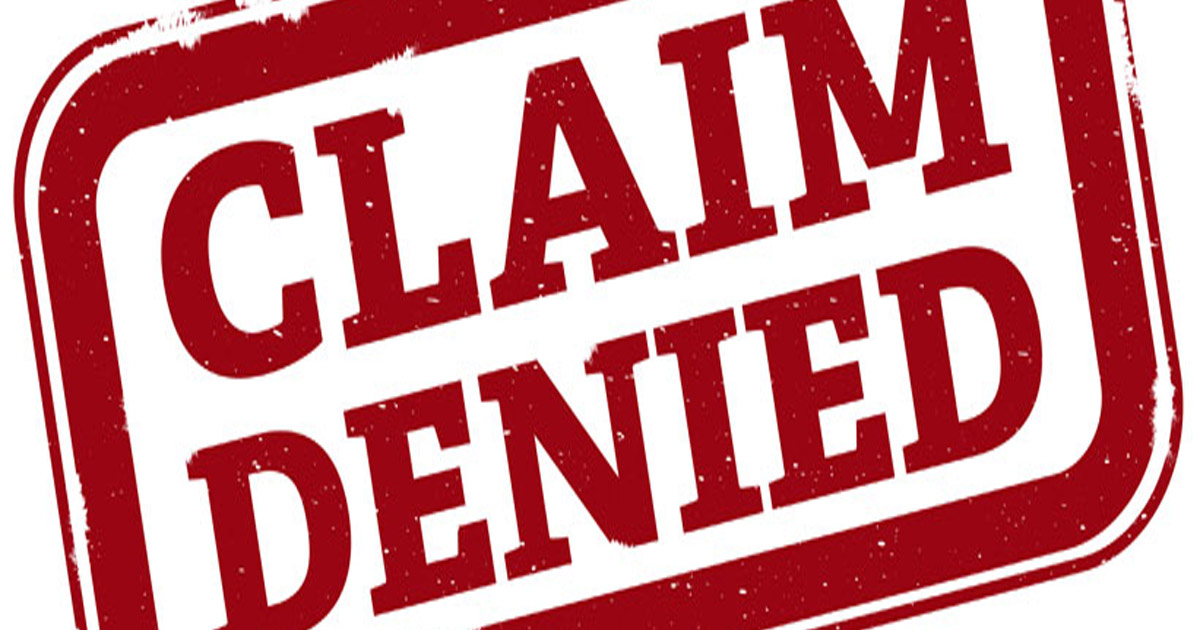
There is insurance for almost every type of need, such as health insurance, home insurance, car insurance, and flood and hurricane insurance. In the best case scenario, premiums have been paid for years and a claim is never filed. However, many valid claims are filed each year. In the United States, there are around 1.4 billion health insurance claims filed every year, according to the American Association of Retired Persons (AARP). Also, many claims are filed for home, auto, and life insurance.
Some insurance companies try to underpay or get out of paying anything to the policyholder. In this case, the policyholder can sue the company for a bad faith insurance claim. When this happens, the policyholder should seek legal recourse as soon as possible.
What is a Bad Faith Insurance Claim?
Generally, a bad faith insurance case must show that the valid claim met the terms of the policy and benefits were withheld, and the insurance company was unreasonable in withholding the benefits. Insurance companies can use a variety of tactics to avoid or reduce the amount they owe to a customer who has filed a claim, including:
- Intentionally misrepresenting the policy provisions to minimize the cost of a claim.
- Intentionally misrepresenting the law regarding insurance claims.
- Inadequately investigating property damage in order to undervalue or deny a claim.
- Denying a claim without providing satisfactory explanation or documentation.
- Delaying the payment of benefits for an unreasonable amount of time after the policyholder submits proof of loss.
- Forcing the policyholder into litigation to recover the amount owed by the insurance company.
Insurance companies have a legal responsibility to provide the protection that the policyholder has paid for. They are required to act in good faith and deal fairly when settling a claim. Not every claim that gets denied is an issue of bad faith on the part of the insurer. It is possible that the policy did not cover the damage being claimed by the policyholder or that mistakes were made in filing the paperwork. It is true that insurance policies are full of fine print and difficult to understand. A claimant who feels they are being treated unfairly and in bad faith by their insurance company should seek legal representation from an experienced bad faith insurance lawyer.
What Types of Compensation are Available in a Bad Faith Insurance Claim?
There are several different kinds of compensation that a plaintiff in a bad faith insurance claim can try to recover. The goal is to recover the amount that the initial claim was seeking under the insurance policy. Additional damages can include the cost of legal fees for the suit and other legal fees incurred, such as those for defending a lawsuit that resulted from lack of coverage by the insurance company and punitive damages.
Punitive damages in a bad faith insurance case are different from those in personal injury cases. Insurance companies are most often large companies with billions of dollars in assets and teams of lawyers. Awards for punitive damages in bad faith insurance suits can be very high and are meant as a signal to companies who break the implied covenant of good faith. Without the assumed promise of good faith, an insurance policy is worth nothing.
How can I Prevent My Insurance Claim from Being Denied?
Insurers will seize on minor errors to delay or avoid paying. To minimize the risk of an insurance claim being denied, there are several precautions a consumer should take when filing a claim:
- Notify the insurance company immediately after an accident or catastrophic event. There is often a time limit to make a claim.
- Keep careful records and gather evidence to support the claim. In the case of a car accident, this could include photographs of the accident scene and witness statements. For medical claims, documents from hospital stays, medical records, prescriptions for medication, and invoices from doctors are all important to prove a claim. Homeowners need to keep detailed records of valuables and expensive possessions, including receipts and photographs or videos.
- Follow the insurance company’s claim process carefully. Use their forms and call and ask for clarification about what to do if it is necessary. Be sure to use the correct claim number and policy identification number. Mistakes on a form can cause major delays in processing a claim.
- Keep copies of every conversation with the date and time. Ask for the name of the person on the other end of the call and for a call reference number. Take detailed notes of what was said.
- Stay calm and be persistent. Insurance companies count on consumers becoming frustrated and giving up. Be courteous but firm when dealing with representatives from the insurance company, and make it known that they will have to pay the benefits they owe.
If one wishes to file a bad faith insurance claim, it is important to retain a lawyer right away.
Pittsburgh Bad Faith Lawyers at AlpernSchubert P.C. Help Consumers Fight Back Against Insurance Companies Who Deny Valid Claims
You may have paid insurance premiums for years only to find that your insurance company walked away from their obligations to you as a policyholder. A Pittsburgh bad faith lawyer at AlpernSchubert P.C. is ready to fight for the compensation you are entitled to. Call us at 412-765-1888 or complete our online form for a free consultation about your case. Located in Pittsburgh, we represent clients throughout western Pennsylvania, including Lawrence County, Allegheny County, and Washington County.
